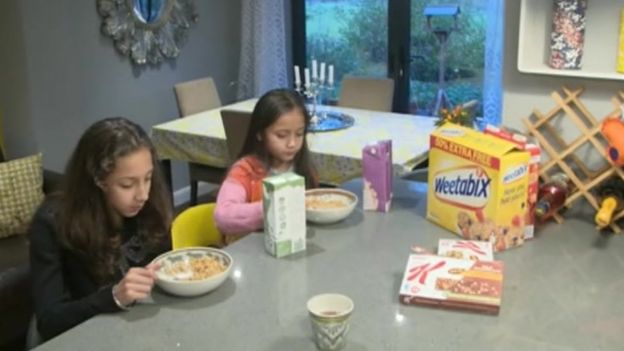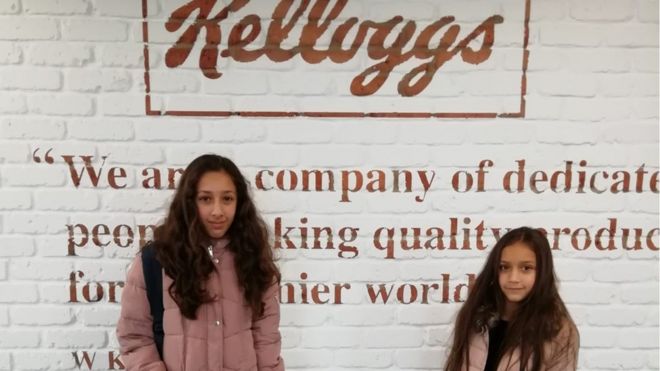Two sisters have won a victory in their environmental campaign after a food giant agreed to remove "unsustainable" palm oil from its products.
Asha and Jia Kirkpatrick, aged 12 and 10 and from Bedfordshire, launched a petition after hearing about rainforest destruction stemming from the industry.
Their mother said it was "positive" news but the girls would wait to see if the company followed through.
Kellogg's said it was committed to "environmentally responsible" palm oil.
Palm oil has been used in everyday products from toothpaste to margarine and thousands of acres of Indonesian rainforest have been destroyed to create it.
As a result, some 25 orangutans are being killed every day, according to Greenpeace.
The girls, from Leighton Buzzard, started an online petition in August 2018, inspired by a TV documentary, and it has since had more than 780,000 signatures.
 AFP/GETTY
AFP/GETTY
Their mother Harvinder Dhinsa said it was "fantastic" Kellogg's had agreed to make changes but the family would wait to see how the policies would work in practice.
She said: "I am very proud of them [the girls].
"It is a very big step forward. There is a difference from what is on paper to what happens on the ground so we will have to see what happens in a year."
After launching their campaign the sisters were invited to visit Kellogg's UK offices and Mrs Dhinsa said they were hoping to follow up with the company to see the impact of the changes.
- What is sustainable palm oil?
- Orangutan numbers stable but palm oil still a threat
- No putting meat on expenses, says property firm
As part of its pledges Kellogg's has said it will work with smallholders to increase efficiency, work with independent non-governmental organisations that will monitor suppliers and invest in restoring forests and wildlife.
A Kellogg's spokeswoman said the palm oil the company used in Europe was produced in a "sustainable way" and was certified as such.
She said: "We can trace the palm oil we buy for use in our foods from the moment it leaves the accredited sustainable palm oil mill, through our supply and manufacturing processes and into our food."


No comments:
Post a Comment